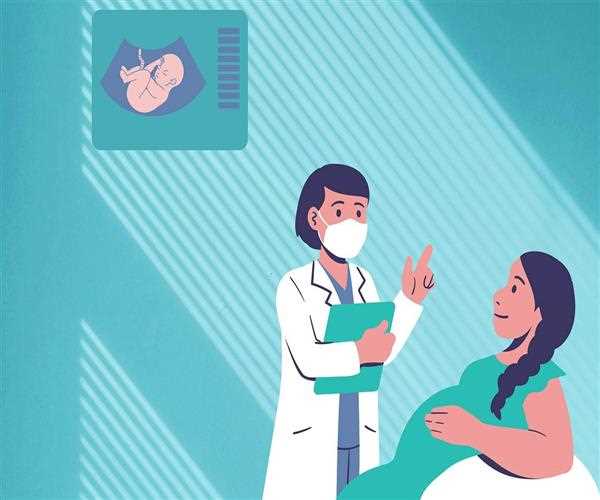Search here

08-Apr-2022
How much weight should I gain during Pregnancy
Playing text to speech
If you eat a healthy, balanced diet, your baby will get the nutrients he needs and grow at a healthy rate. But, honestly, how many extra calories do you need?
Even if you need a few extra calories, you don’t need a “meal for two”. The average pregnant woman needs only 300 extra calories a day before she becomes pregnant. It helps them gain reasonable weight during pregnancy.
Ask your doctor how much weight you should gain. A woman of normal weight before pregnancy should gain 25 to 35 pounds after delivery. Underweight women should gain 28 to 40 pounds. In addition, obese women need to gain only 15 to 25 pounds during pregnancy.
During the first three months of your pregnancy, you should gain 2 to 4 pounds for the duration of your pregnancy, and then 1 pound each week. During your pregnancy, if you have twins, you should gain 35 to 45 pounds. After a normal weight gain in the first three months, there is an average of 12 pounds each week.
When you are expecting twins, it is very important to get the right weight as your weight affects the weight of the baby. Large birth weight is also important for the health of twins because they are often born before their due date. If you have twins you may need 3,000 to 3,500 calories a day.
What happens to extra pounds during pregnancy?
- 8-pound baby
- 2-3 pounds placenta
- 2-3 pounds of amniotic fluid
- ******* 2-3 pounds of tissue
- 4-pound blood supply
- 5-9 lbs *** are stored for birth and lactation
- 2-5 lbs for large ******
Total weight: 25-35 lbs.
Is it safe to lose weight while pregnant?
If a woman is obese while pregnant, her doctor will advise her to lose weight. They should lose weight only under the supervision of their doctor. However, in most cases, women should not try to lose weight or diet while pregnant.
How to gain weight while pregnant
If your doctor wants you to gain weight while you are pregnant, follow these guidelines:
Every day, eat five to six modest meals.
Have almonds, raisins, cheese and crackers, dried fruits, and ice cream or yogurt on hand for a quick and easy breakfast.
Sprinkle peanut butter over bread, crackers, apples, bananas, or celery. One tablespoon of creamy peanut butter contains 100 calories and 7 grams of protein.
Make hot cereals with mashed potatoes, scrambled eggs, and nonfat powdered milk.
Extra ingredients like butter or margarine, cream cheese, gravy, sour cream, and cheese can be added to your dish.
When should you consult your doctor?
If you experience any of the following symptoms, see your doctor:
- Do you want to know what is the best goal to gain weight?
- Do you believe you are gaining too much weight?
- Are you gaining or losing weight in the second or third trimester?
- Is there an eating disorder that is preventing you from eating a balanced diet?
- Need help creating a solid meal plan to gain healthy weight?
- Rapid weight gain. It can be a sign of preeclampsia, a significant health problem caused by high blood pressure during pregnancy.
What happens if you gain a lot of weight while you are pregnant?
Talk to your doctor if you gain more weight than your doctor recommends. In most cases, weight loss should be postponed until after delivery.
Here are some weight loss tips:
When eating baked potato fast food, choose low-*** options such as grilled chicken ****** tomatoes and lettuce (without sauce or mayonnaise) sandwich (without sauce or mayonnaise), side salad with minimal dressing, plain bagel or plain. . Foods like french fries, mozzarella sticks and bread chicken patties should be avoided.
Whole dairy products should be avoided. Every day, you should take at least four servings of dairy products. On the other hand, consuming skimmed, 1% or 2% milk will significantly reduce the number of calories you consume.
Limit the intake of sweet or sugary drinks. Soft drinks, fruit punch, fruit drinks, iced tea, lemon juice, and powder drink mixes contain a lot of empty calories. Choose water, club soda, or mineral water to avoid unwanted calories.
Avoid adding salt while cooking. You retain water when you eat salt.
Avoid sweet and high-calorie foods. Cookies, sweets, donuts, cakes, syrups, honey, and potato chips are high in calories but low in nutrients. Avoid eating these foods regularly. Instead, choose low-calorie snacks and desserts such as fresh fruit, low-*** yogurt, angel food cake with strawberries, or pretzels.
Fat should be taken in moderation. Cooking oils, margarine, butter, gravy, sauces, mayonnaise, simple salad dressings, sauces, lard, sour cream, and cream cheese are all good sources of s ***. Low - *** Foods are a good choice.
Cook your food healthy. Adding calories to recipes and frying in oil or butter is a bad idea. Healthy cooking methods include baking, broiling, grilling, and boiling.
Exercise. Exercising moderately will burn calories. Pregnant women can safely walk or swim. Before you start, talk to your doctor about what type of exercise is best for you.

Comments
Solutions
Copyright 2010 - 2024 MindStick Software Pvt. Ltd. All Rights Reserved Privacy Policy | Terms & Conditions
